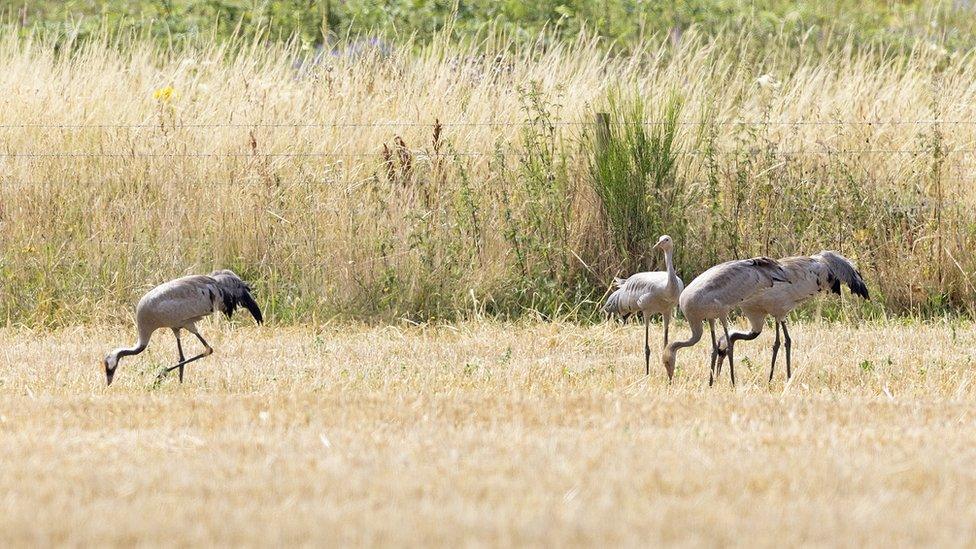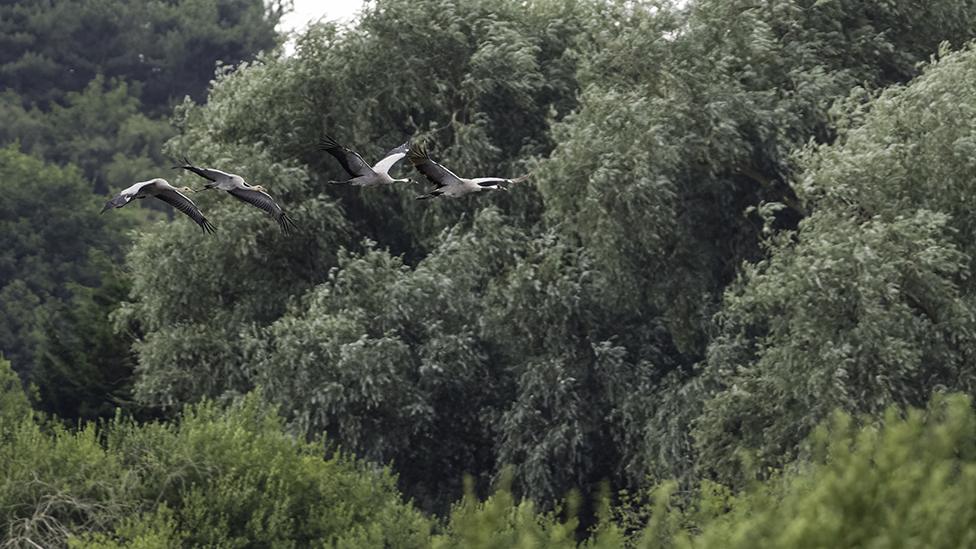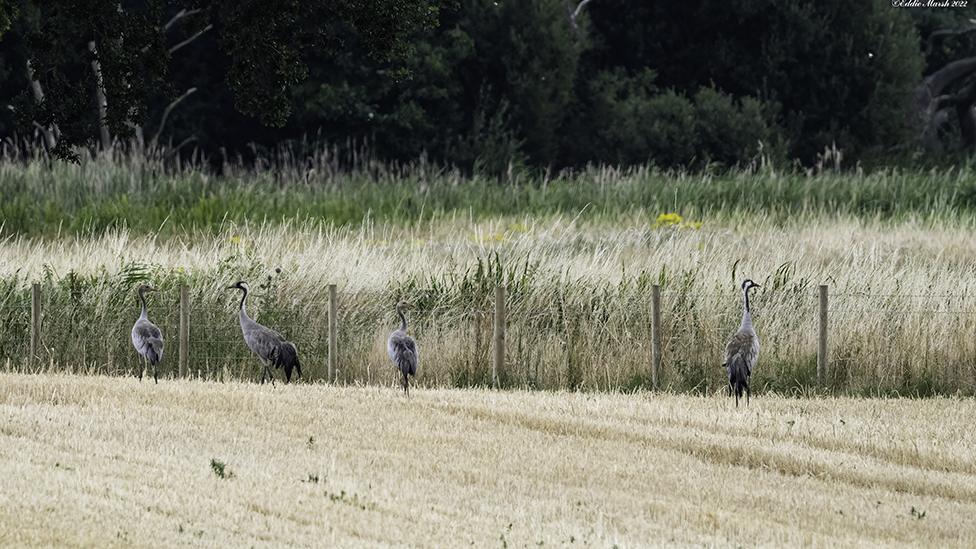Cranes fledge young on Suffolk coast for the first time
- Published

The cranes successfully raised two chicks at the RSPB's relatively new Snape Wetlands Nature Reserve in Suffolk
Two cranes have become the first ever recorded pair to fledge young on the Suffolk coast, a wildlife charity said.
The RSPB said the birds successfully raised two chicks at its relatively new Snape Wetlands Nature Reserve.
It said it was a great achievement and it hoped it "kick starts" the population of cranes in the area.
The crane is a rare breeder in Britain with about 65 pairs breeding each year, the charity said.
Originally returning to the Norfolk Broads in 1979, it said numbers of the bird were steadily increasing with other populations found in South Yorkshire, the Fens and, with assistance of a crane introduction project, the Somerset Levels and Moors.

The cranes fledged the nest in August but the RSPB waited to announce the news so the birds did not get disturbed
RSPB site manager Aaron Howe said: "To have cranes successfully breed and fledge on the Suffolk coast for the first time and for it to be on our relatively new Snape Wetlands reserve, is a great achievement.
"We hope this kick starts the population of cranes on the Suffolk coast and they become more widespread within the area of outstanding natural beauty."
He said the cranes fledged the nest in August, but because the birds were "very susceptible to disturbance by people", they had waited until the family left the site for the winter "before shouting about how amazing this moment is".

It is hoped more cranes will breed at the site near Snape Maltings
Work to convert the 82-hectare (202-acre) grassland near Snape Maltings into wetland and reedbed started in 2008 and was completed in 2014.
As part of the scheme, ponds and pools were excavated, and water levels were controlled to sculpt and create the wetland.
The RSPB said it would continue to manage the wetlands to encourage more cranes to breed on the site.

Find BBC News: East of England on Facebook, external, Instagram, external and Twitter, external. If you have a story suggestion email eastofenglandnews@bbc.co.uk, external